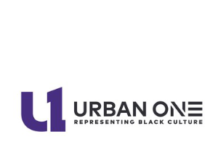
(By Radio Ink Chairman Eric Rhoads) Give the media a little bad news, and they’ll milk it to death. Give them a chance to bash another medium that competes for dollars, and they’ll do their best to destroy their rival.
Two Chapter 11 bankruptcies for radio is a chance for other media to say…
Radio is dead.
Radio isn’t surviving in modern times.
Radio is over — it’s so 1920s.
While they kick radio with all their might, they are leaving out the rest of the story: radio is strong, healthy, making money, and not an industry in decline.
What? How can that be with bankruptcies, you ask?
For those inside the industry, we know now that the 2+2=10 thinking that led to overpaying for properties was flawed. Though the women and men who dreamed up these consolidated companies had big dreams and big ideas, and thought they would have better, stronger companies with many hundreds of stations in their portfolios … well, they were only partially right.
Though operating as big companies has turned out to be a pretty good thing — if you’re one of the employees who managed to survive the multiple layoff bloodbaths, you’re probably better off with more stability, more benefits and perks. And perhaps the necessity to keep making deep, painful cuts will come to an end now. (That one might not come true, but we can only hope.)
I can remember when everyone was scrambling to buy everything in sight, and everybody being critical of David Field for not getting in on the insane multiples and the buying frenzy. “He isn’t going to be able to compete,” they said. Yet today, because he was patient, measured, conservative, and a contrarian, he is king of the hill when it comes to being a smart operator in solid condition. And I applaud Field for standing up for radio, being a strong leader, and seeing these bankruptcies for what they really are: a great correction.
Truthfully, I think these bankruptcies are the best news radio has had in 10 years. There was simply no way iHeartMedia and Cumulus could ever pay down their debt, and, at least in theory, this will make things easier for everyone. Though it’s painful for investors, it’s a pretty good thing for the two radio mega-companies. And though Cumulus seems to be struggling with operations and solid growth numbers, it’s only a matter of time before they get that under control. Meanwhile, iHeart has strong leadership whose operating business is growing and strong (once you discount the debt issues).
We as an industry are used to being beat up, criticized, and mocked for being old school technology, yet our listening levels remain strong, especially in comparison to legacy media like broadcast TV and newspapers, which have indeed lost much of their audience. Radio has lost some, but the story is not a story of mass exodus. Let’s celebrate that.
Fear not. The bad news isn’t bad at all, and this recasting of the industry should be good for radio. Of course we’ll all have to make sure to tell the accurate story and continue to show the ROI we create for advertisers, which continues to be stronger than most media, especially digital.
We must not forget that the leaders of these companies didn’t create the debt, but came in well aware of it, and we must have confidence that they will lead and be strong, and will set positive examples that radio can celebrate.
Fear not. Radio is alive and well, and we all need to be thankful these bankruptcies are going to relieve the debt pressure and allow these two spotlighted companies to show that they can thrive.
Eric Rhoads is Chairman of Radio Ink magazine and can be reached at [email protected]






Let’s see, two suck-up comments and one truthful comment. I’d say that’s about average for today’s Radio industry, and don’t forget to fire that truth-teller! He might give Radio a “bad name” /sarc
Since Deregulation some 22-years ago… a pretty high price has been paid in the name of greed by the COMMUNITIES to be served by the licensee…ADVERTISERS who have been short-changed… LISTENERS…and most important the former EMPLOYEES of the entire industry who were nothing more than collateral damage on the way to the bank..and now the vendors and suppliers get to pay…by NOT getting paid.
Excellent, Eric! Strategic, no-cost navigation makes all boats rise.
Very well written Eric! Well articulated and solid observations and points, in my opinion. Keep up the good work!